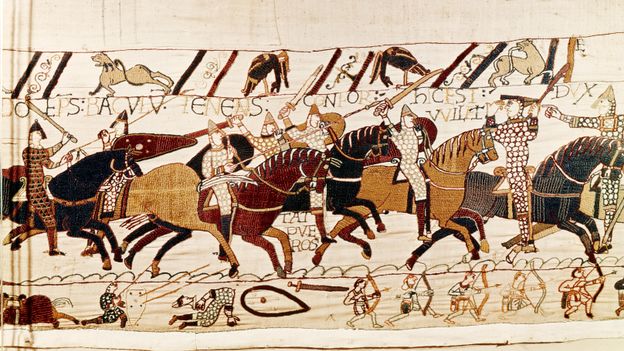How Ancient Civilisations Addressed Trauma Throughout History
Temel Kavramlar
Ancient civilizations developed unique methods to cope with trauma, utilizing religious rituals, cleansing practices, and immersive plays to address the psychological impact of war.
Özet
Ancient civilizations like Mesopotamia, Medieval Europe, Ancient Rome, and Ancient Greece employed various strategies to deal with the psychological effects of war. From penitential rituals in Medieval Europe to gladiatorial matches in Ancient Rome and immersive plays in Ancient Greece, these coping mechanisms aimed to provide solace and healing for individuals affected by conflict. The use of religion, special permissions from gods, and dramatic performances showcased how different societies approached trauma throughout history.
Customize Summary
Rewrite with AI
Generate Citations
Translate Source
To Another Language
Generate MindMap
from source content
Visit Source
www.bbc.com
How ancient civilisations dealt with trauma
İstatistikler
The oldest recorded war occurred in Mesopotamia in 2700BC.
The Ermenfrid Penitential outlined specific penances for soldiers involved in bloodshed during the Norman conquest.
Gladiatorial games were used by the Romans as a way to desensitize young men to violence.
Aeschylus' plays depicted the aftermath of conflicts and served as a form of catharsis for veterans.
Athenians promised sacrifices to goddess Artemis before the Battle of Marathon.
Alıntılar
"The Romans were very legalistic people... But the fetials always insisted that what was going on was defensive and that war was justified." - Barry Strauss
"Tragic plays were an extension of this culture... That's hard to replicate [today]." - Peter Meineck
"I think we need to come together collectively, and experience it together... if we can do that, then we can [start to] heal ourselves." - Peter Meineck
Önemli Bilgiler Şuradan Elde Edildi
by : www.bbc.com 12-08-2023
https://www.bbc.com/future/article/20231208-the-rituals-that-helped-our-ancestors-recover-from-trauma
Daha Derin Sorular
How did ancient societies' coping mechanisms compare with modern approaches to trauma?
Ancient societies had unique coping mechanisms for dealing with trauma that were often intertwined with religious beliefs, rituals, and cultural practices. For example, medieval Europe relied heavily on religion to help soldiers cope with the psychological effects of war through prayers, blessings, and penances. These practices aimed at absolving individuals of moral injury and providing a sense of spiritual cleansing. In contrast, modern approaches to trauma typically involve evidence-based therapies such as cognitive-behavioral therapy (CBT), eye movement desensitization and reprocessing (EMDR), and medication.
What role did superstitions play in shaping ancient civilizations' responses to war-related trauma?
Superstitions played a significant role in shaping ancient civilizations' responses to war-related trauma by influencing their beliefs about fate, luck, and divine intervention. For instance, the Ancient Romans were known for seeking permission from gods before engaging in wars through rituals like releasing sacred chickens or consulting priests. These superstitious practices were believed to determine the outcome of battles and could impact soldiers' confidence going into combat. While modern societies rely more on scientific explanations for traumatic events, superstitions still hold cultural significance in some communities.
How can contemporary societies incorporate elements of ancient coping strategies into modern mental health practices?
Contemporary societies can benefit from incorporating elements of ancient coping strategies into modern mental health practices by recognizing the value of communal healing rituals, storytelling traditions, and cathartic experiences. For example, programs like the Warrior Chorus Project draw inspiration from Ancient Greek plays to help veterans process their trauma through shared narratives and performances. By creating spaces for collective reflection, emotional expression, and empathy-building activities inspired by historical practices such as religious ceremonies or dramatic performances can enhance therapeutic outcomes in addressing complex traumas prevalent in today's society.
0
